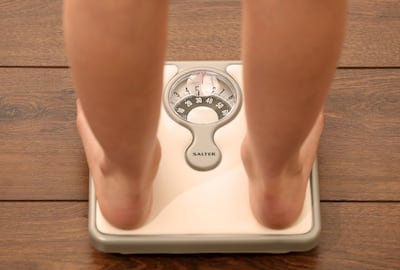A new study has identified a link between urban landscape and obesity and eating disorders in adolescence.
Calling for policy changes to improve public health, the research published in the journal Obesity found that human-made surroundings, especially in cities, were a significant indicator of adolescents’ body mass index (BMI), weight and eating behaviour.
It found that the built environment, such as the proximity of fast-food restaurants versus parks and recreation facilities, was the most telling factor in determining adolescent obesity, while social and economic factors such as crime, social support, household income and education were not linked directly to the chances of obesity or eating behaviour.
The researchers set out to investigate the role of the built, social and economic environments in adolescent obesity.
Researchers analysed data from the Military Teenagers Environments, Exercise and Nutrition Study — a cohort study of adolescents in military families.
Information was collected on their BMI, weight, obesity levels and self-reported dietary and exercise habits.
The results revealed that exposure to more healthy surroundings for more than two years was associated with lower probability of obesity and lower overweight or obesity status, although not with BMI scores.
The built environment was found to be the most crucial factor in determining adolescent obesity, with the proximity of fast-food restaurants, parks and recreation facilities to homes being a significant factor. In contrast, social and economic environments were not associated with any outcomes.
Amanda Staiano, associate professor at Louisiana State University’s Pennington Biomedical Research Centre, said: “An interesting finding is that it was specifically the built environment that mattered — features like how close the adolescent lives to fast-food restaurants versus park and recreation facilities.
“Less important were the social and economic environmental factors like crime, social support, household income, household education — and while very important for adolescents' health, these factors were not directly tied to obesity risk or eating behaviours in this study, and these factors are also harder to modify.”
The results of the study suggest that policies aimed at preventing adolescent obesity should focus on improving the built surroundings.
Improvements suggested include limiting fast-food outlets near school zones, creating street policies to ensure pedestrians and cyclists are safe on the roads, supporting local councils to build more playgrounds and parks, and making it easier for families to use public sports facilities at weekends.
The study authors noted that such enhancements would require input and action from many stakeholders, including urban planners, elected officials and research scientists, as well as community members, to create healthier spaces in which adolescents can play, learn and live.
Leaderboard
63 - Mike Lorenzo-Vera (FRA)
64 - Rory McIlroy (NIR)
66 - Jon Rahm (ESP)
67 - Tom Lewis (ENG), Tommy Fleetwood (ENG)
68 - Rafael Cabrera-Bello (ESP), Marcus Kinhult (SWE)
69 - Justin Rose (ENG), Thomas Detry (BEL), Francesco Molinari (ITA), Danny Willett (ENG), Li Haotong (CHN), Matthias Schwab (AUT)
Honeymoonish
%3Cp%3E%3Cstrong%3EDirector%3A%3C%2Fstrong%3E%20Elie%20El%20Samaan%3C%2Fp%3E%0A%3Cp%3E%3Cstrong%3EStarring%3A%20%3C%2Fstrong%3ENour%20Al%20Ghandour%2C%20Mahmoud%20Boushahri%3C%2Fp%3E%0A%3Cp%3E%3Cstrong%3ERating%3A%3C%2Fstrong%3E%203%2F5%3C%2Fp%3E%0A
Tearful appearance
Chancellor Rachel Reeves set markets on edge as she appeared visibly distraught in parliament on Wednesday.
Legislative setbacks for the government have blown a new hole in the budgetary calculations at a time when the deficit is stubbornly large and the economy is struggling to grow.
She appeared with Keir Starmer on Thursday and the pair embraced, but he had failed to give her his backing as she cried a day earlier.
A spokesman said her upset demeanour was due to a personal matter.
Essentials
The flights
Whether you trek after mountain gorillas in Rwanda, Uganda or the Congo, the most convenient international airport is in Rwanda’s capital city, Kigali. There are direct flights from Dubai a couple of days a week with RwandAir. Otherwise, an indirect route is available via Nairobi with Kenya Airways. Flydubai flies to Kinshasa in the Democratic Republic of Congo, via Entebbe in Uganda. Expect to pay from US$350 (Dh1,286) return, including taxes.
The tours
Superb ape-watching tours that take in all three gorilla countries mentioned above are run by Natural World Safaris. In September, the company will be operating a unique Ugandan ape safari guided by well-known primatologist Ben Garrod.
In the Democratic Republic of Congo, local operator Kivu Travel can organise pretty much any kind of safari throughout the Virunga National Park and elsewhere in eastern Congo.
Company profile
Name: Fruitful Day
Founders: Marie-Christine Luijckx, Lyla Dalal AlRawi, Lindsey Fournie
Based: Dubai, UAE
Founded: 2015
Number of employees: 30
Sector: F&B
Funding so far: Dh3 million
Future funding plans: None at present
Future markets: Saudi Arabia, potentially Kuwait and other GCC countries
Results
5pm: Maiden (PA) Dh80,000 (Turf) 2,200m, Winner: Zalman, Pat Cosgrave (jockey), Helal Al Alawi (trainer)
5.30pm: Maiden (PA) Dh80,000 (T) 1,600m, Winner: Hisham Al Khalediah II, Fernando Jara, Mohamed Daggash.
6pm: Handicap (PA) Dh85,000 (T) 1,600m, Winner: Qader, Adrie de Vries, Jean de Roualle
6.30pm: Abu Dhabi Championship Listed (PA) Dh180,000 (T) 1,600m, Winner: Mujeeb, Fabrice Veron, Eric Lemartinel
7pm: Wathba Stallions Cup Handicap (PA) Dh70,000 (T) 1,600m, Winner: AF Majalis, Tadhg O’Shea, Ernst Oertel
7.30pm: Handicap (TB) Dh90,000 (T) 1,600m, Winner: Shanaghai City, Fabrice Veron, Rashed Bouresly
8pm: Handicap (TB) Dh100,000 (T) 1,400m, Winner: Nayslayer, Bernardo Pinheiro, Jaber Ramadhan
War
Director: Siddharth Anand
Cast: Hrithik Roshan, Tiger Shroff, Ashutosh Rana, Vaani Kapoor
Rating: Two out of five stars
Ant-Man and the Wasp
Director: Peyton Reed
Starring: Paul Rudd, Evangeline Lilly, Michael Douglas
Three stars
New UK refugee system
- A new “core protection” for refugees moving from permanent to a more basic, temporary protection
- Shortened leave to remain - refugees will receive 30 months instead of five years
- A longer path to settlement with no indefinite settled status until a refugee has spent 20 years in Britain
- To encourage refugees to integrate the government will encourage them to out of the core protection route wherever possible.
- Under core protection there will be no automatic right to family reunion
- Refugees will have a reduced right to public funds
The Birkin bag is made by Hermès.
It is named after actress and singer Jane Birkin
Noone from Hermès will go on record to say how much a new Birkin costs, how long one would have to wait to get one, and how many bags are actually made each year.
White hydrogen: Naturally occurring hydrogen
Chromite: Hard, metallic mineral containing iron oxide and chromium oxide
Ultramafic rocks: Dark-coloured rocks rich in magnesium or iron with very low silica content
Ophiolite: A section of the earth’s crust, which is oceanic in nature that has since been uplifted and exposed on land
Olivine: A commonly occurring magnesium iron silicate mineral that derives its name for its olive-green yellow-green colour
Pathaan
%3Cp%3E%3Cstrong%3EDirector%3A%3C%2Fstrong%3E%20Siddharth%20Anand%C2%A0%3C%2Fp%3E%0A%3Cp%3E%3Cstrong%3EStars%3A%3C%2Fstrong%3E%20Shah%20Rukh%20Khan%2C%20Deepika%20Padukone%2C%20John%20Abraham%C2%A0%3C%2Fp%3E%0A%3Cp%3E%3Cstrong%3ERating%3A%3C%2Fstrong%3E%203%2F5%3C%2Fp%3E%0A
5 of the most-popular Airbnb locations in Dubai
Bobby Grudziecki, chief operating officer of Frank Porter, identifies the five most popular areas in Dubai for those looking to make the most out of their properties and the rates owners can secure:
• Dubai Marina
The Marina and Jumeirah Beach Residence are popular locations, says Mr Grudziecki, due to their closeness to the beach, restaurants and hotels.
Frank Porter’s average Airbnb rent:
One bedroom: Dh482 to Dh739
Two bedroom: Dh627 to Dh960
Three bedroom: Dh721 to Dh1,104
• Downtown
Within walking distance of the Dubai Mall, Burj Khalifa and the famous fountains, this location combines business and leisure. “Sure it’s for tourists,” says Mr Grudziecki. “Though Downtown [still caters to business people] because it’s close to Dubai International Financial Centre."
Frank Porter’s average Airbnb rent:
One bedroom: Dh497 to Dh772
Two bedroom: Dh646 to Dh1,003
Three bedroom: Dh743 to Dh1,154
• City Walk
The rising star of the Dubai property market, this area is lined with pristine sidewalks, boutiques and cafes and close to the new entertainment venue Coca Cola Arena. “Downtown and Marina are pretty much the same prices,” Mr Grudziecki says, “but City Walk is higher.”
Frank Porter’s average Airbnb rent:
One bedroom: Dh524 to Dh809
Two bedroom: Dh682 to Dh1,052
Three bedroom: Dh784 to Dh1,210
• Jumeirah Lake Towers
Dubai Marina’s little brother JLT resides on the other side of Sheikh Zayed road but is still close enough to beachside outlets and attractions. The big selling point for Airbnb renters, however, is that “it’s cheaper than Dubai Marina”, Mr Grudziecki says.
Frank Porter’s average Airbnb rent:
One bedroom: Dh422 to Dh629
Two bedroom: Dh549 to Dh818
Three bedroom: Dh631 to Dh941
• Palm Jumeirah
Palm Jumeirah's proximity to luxury resorts is attractive, especially for big families, says Mr Grudziecki, as Airbnb renters can secure competitive rates on one of the world’s most famous tourist destinations.
Frank Porter’s average Airbnb rent:
One bedroom: Dh503 to Dh770
Two bedroom: Dh654 to Dh1,002
Three bedroom: Dh752 to Dh1,152



